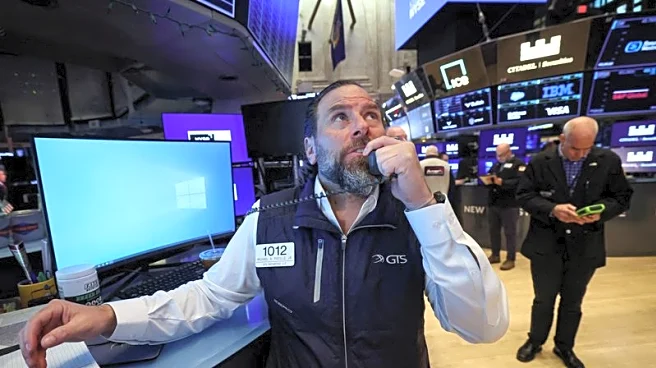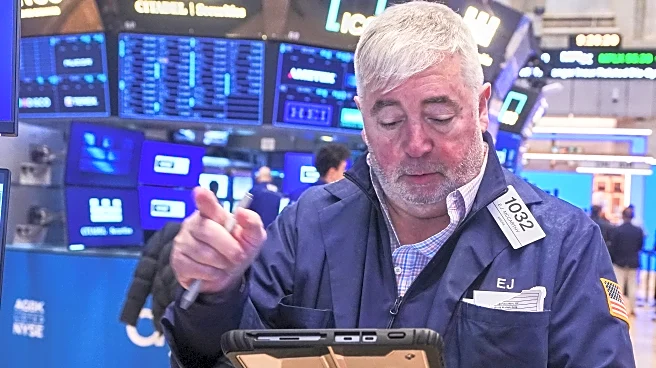What's Happening?
The stock market has increasingly become a platform for speculative trading, driven by retail investors attracted to the promise of quick gains. This trend is facilitated by commission-free trading apps and social media hype, transforming the market into what some describe as a 'slot machine.' Retail trading volumes have surged, with phenomena like meme stock rallies and zero-days-to-expiration options blurring the line between informed investment and speculation. Retail investors now account for a significant portion of daily U.S. equity trading volume, marking a shift in market dynamics.
Why It's Important?
The rise of speculative trading has profound implications for the market ecosystem. It introduces volatility and can decouple stock prices from company fundamentals, creating challenges for institutional investors and traditional analysts. Companies targeted by retail enthusiasm may experience temporary stock price surges, impacting their ability to raise capital. However, this speculative environment can lead to significant losses for retail investors who buy at peak prices. The trend also benefits brokerage firms and market makers, who profit from increased trading volumes and volatility.
What's Next?
The trajectory of speculative trading suggests continued market volatility, with meme stock phenomena and speculative instruments like 0DTE options persisting. Regulatory bodies are scrutinizing practices like Payment for Order Flow and gamification of trading apps, which may lead to increased regulation to protect investors. Investors will need to adapt by focusing on fundamental analysis and diversification to navigate the speculative landscape. Potential market corrections could occur as speculative bubbles burst, impacting broader market stability.
Beyond the Headlines
The speculative trading trend reflects broader industry shifts towards democratized finance and digitally empowered retail investors. This has reshaped market participation and behavior, leading to increased volatility and unpredictable stock valuations. Regulatory intervention may temper the most egregious aspects of speculative trading, balancing market accessibility with investor protection. The long-term impact will depend on how effectively investors and regulators address the challenges posed by speculative excesses.










